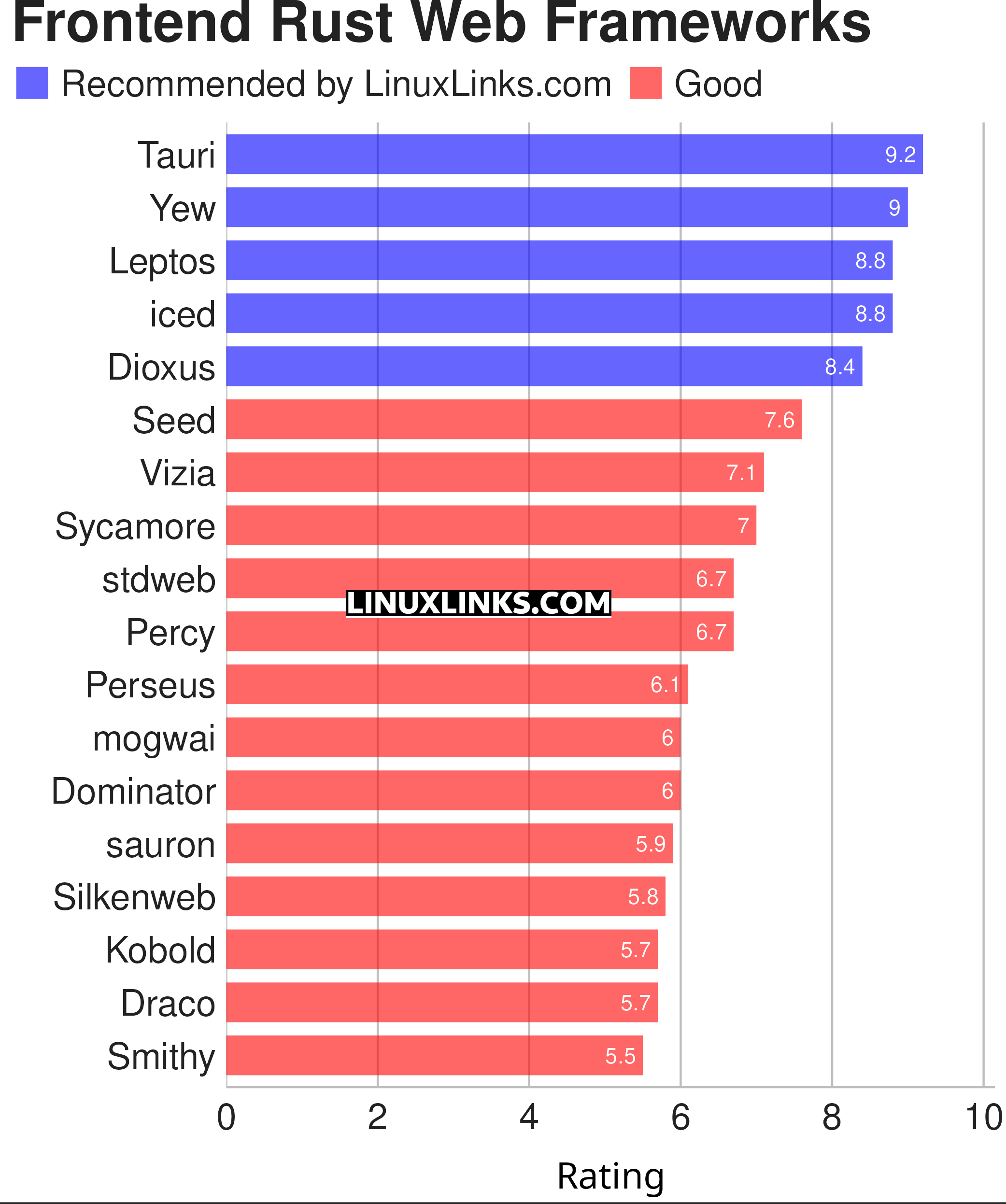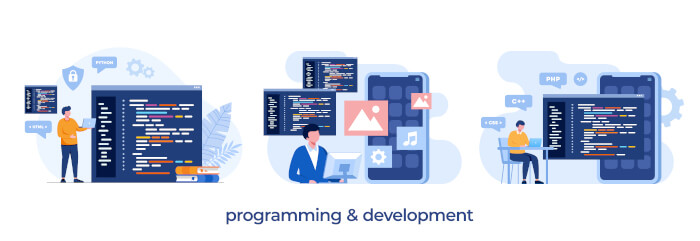One of the types of software that’s important for a web developer is the web framework. A framework “is a code library that makes a developer’s life easier when building reliable, scalable, and maintainable web applications” by providing reusable code or extensions for common operations. By saving development time, developers can concentrate on application logic rather than mundane elements.
A web framework offers the developer a choice about how to solve a specific problem. By using a framework, a developer lets the framework control portions of their application. While it’s perfectly possible to code a web application without using a framework, it’s more practical to use one.
Rust is a systems programming language that runs fast, prevents segmentation faults, and guarantees thread safety. It accomplishes these goals by being memory safe without using garbage collection. The language enables developers to write programs with the performance and control of a low-level language, but with the powerful abstractions of a high-level language.
Here’s our verdict captured in a legendary LinuxLinks-style ratings chart. Only free and open source software is eligible for inclusion.

Let’s explore the 18 Rust frontend web frameworks. For each program we have compiled its own portal page, a full description with an in-depth analysis of its features, together with links to relevant resources.
| Rust Frontend Web Frameworks | |
|---|---|
| Tauri | Framework for building tiny, blazing fast binaries for all major desktop platforms |
| Yew | Modern framework for creating multi-threaded front-end web apps |
| Leptos | Full-stack, isomorphic Rust web framework |
| iced | GUI library focused on simplicity and type-safety |
| Dioxus | React-like library for building fast, portable, and beautiful user interfaces |
| Seed | Framework for creating fast and reliable web apps with an Elm-like architecture |
| Vizia | Declarative GUI library |
| Sycamore | Next generation UI library |
| stdweb | Standard library for the client-side Web |
| Percy | Collection of libraries for building interactive frontend browser apps |
| Perseus | State-driven web development framework |
| mogwai | View library for creating GUI applications |
| Dominator | High-performance declarative DOM library |
| sauron | Suited for developing web application which uses progressive rendering |
| Silkenweb | Library for building reactive web apps |
| Kobold | Easy declarative web interface |
| Draco | Build client side web applications with Web Assembly |
| Smithy | Build WebAssembly applications with Rust |
This article has been revamped in line with our recent announcement.
 Read our complete collection of recommended free and open source software. Our curated compilation covers all categories of software. Read our complete collection of recommended free and open source software. Our curated compilation covers all categories of software. Spotted a useful open source Linux program not covered on our site? Please let us know by completing this form. The software collection forms part of our series of informative articles for Linux enthusiasts. There are hundreds of in-depth reviews, open source alternatives to proprietary software from large corporations like Google, Microsoft, Apple, Adobe, IBM, Cisco, Oracle, and Autodesk. There are also fun things to try, hardware, free programming books and tutorials, and much more. |
